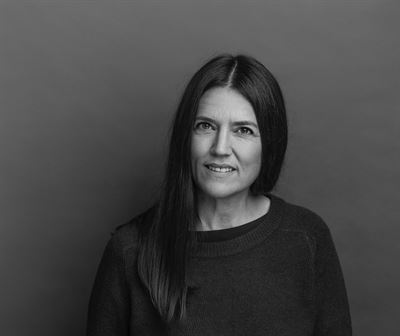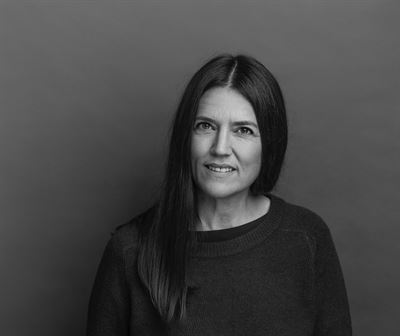Marknadsnyheter
Imfinzi and Imjudo with chemotherapy approved in the US for patients with metastatic non-small cell lung cancer
Approval based on POSEIDON Phase III trial results, which showed significant survival benefit with a limited course of Imjudo added to Imfinzi and chemotherapy.
AstraZeneca’s Imfinzi (durvalumab) in combination with Imjudo (tremelimumab) plus platinum-based chemotherapy has been approved in the US for the treatment of adult patients with Stage IV (metastatic) non-small cell lung cancer (NSCLC).
The approval by the Food and Drug Administration (FDA) was based on the results from the POSEIDON Phase III trial. Patients treated with a limited course of five cycles of the anti-CTLA-4 antibody Imjudo added to Imfinzi plus four cycles of platinum-based chemotherapy experienced a 23% reduction in the risk of death versus a range of chemotherapy options (based on a hazard ratio [HR] of 0.77; 95% CI 0.65-0.92; p=0.00304). An estimated 33% of patients were alive at two years versus 22% for chemotherapy. This treatment combination also reduced the risk of disease progression or death by 28% compared to chemotherapy alone (HR 0.72; 95% CI 0.60-0.86; p=0.00031).
Updated results from the POSEIDON Phase III trial after approximately four years of follow-up presented at the European Society of Medical Oncology (ESMO) Congress 2022 and published in the Journal of Clinical Oncology demonstrated sustained survival benefit, improving overall survival (OS) by 25% compared to chemotherapy alone (HR 0.75; 95% CI 0.63-0.88). An estimated 25% of patients treated with the combination were alive at three years versus 13.6% for those treated with chemotherapy alone. The safety profile for Imjudo plus Imfinzi and chemotherapy was consistent with the known profiles of each medicine, and no new safety signals were identified.
In the US, lung cancer is the second most commonly diagnosed cancer, with more than 236,000 patients expected to be diagnosed in 2022.1 For patients with metastatic NSCLC, prognosis is particularly poor, as only approximately 8% will live beyond five years after diagnosis.2
Melissa Johnson, MD, Director of Lung Cancer Research, Sarah Cannon Research Institute at Tennessee Oncology in Nashville, Tennessee, and a lead investigator in the POSEIDON Phase III trial, said: “Metastatic non-small cell lung cancer remains a significant treatment challenge because many patients’ tumours do not respond well to standard therapies, including checkpoint inhibitors. The approval of this dual immunotherapy regimen with chemotherapy introduces a new, generally well-tolerated treatment option for patients with this devastating disease and gives them the chance to benefit from the long-term survival advantage seen with CTLA-4 inhibition.”
Dave Fredrickson, Executive Vice President, Oncology Business Unit, AstraZeneca, said: “This approval underscores the importance of delivering novel treatment combinations that extend survival in metastatic non-small cell lung cancer, a complex setting where many patients still face a dismal prognosis. This marks the second indication for Imjudo added to Imfinzi in just a few weeks following its approval in unresectable liver cancer, reinforcing the benefits of this new medicine and our commitment to improving patient outcomes in cancer settings with continued unmet need.”
Regulatory applications are also currently under review in Europe, Japan and several other countries for this indication based on the POSEIDON results.
Imfinzi is the only approved immunotherapy and the global standard of care in the curative-intent setting of unresectable, Stage III NSCLC in patients whose disease has not progressed after chemoradiation therapy based on the PACIFIC Phase III trial. Imfinzi is also approved in the US, the EU, Japan, China and many other countries around the world for the treatment of extensive-stage small cell lung cancer (ES-SCLC) based on the CASPIAN Phase III trial. Imfinzi is approved in the US and several other countries in combination with chemotherapy for the treatment of locally advanced or metastatic biliary tract cancer based on the TOPAZ-1 Phase III trial, and it is approved with Imjudo in the US for the treatment of unresectable hepatocellular carcinoma based on the HIMALAYA Phase III trial.
Notes
Stage IV NSCLC
Lung cancer is the second most common form of cancer globally, with more than two million patients diagnosed in 2020.3Lung cancer is broadly split into NSCLC and SCLC, with 80-85% classified as NSCLC. Within NSCLC, patients are classified as squamous, representing 25-30% of patients, or non-squamous, in approximately 70-75% of patients.4-6
POSEIDON
The POSEIDON trial was a randomised, open-label, multi-centre, global, Phase III trial of Imfinzi plus platinum-based chemotherapy, or Imfinzi, Imjudo and chemotherapy, versus chemotherapy alone in the 1st-line treatment of 1,013 patients with metastatic NSCLC. The trial population included patients with either non-squamous or squamous disease, and the full range of PD-L1 expression levels. POSEIDON excluded patients with certain epidermal growth factor receptor (EGFR) mutations or anaplastic lymphoma kinase (ALK) fusions.
In the experimental arms, patients were treated with a flat dose of 1,500mg of Imfinzi, or Imfinzi and 75mg of Imjudo with up to four cycles of chemotherapy every three weeks, followed by maintenance treatment with Imfinzi once every four weeks, or Imfinzi and a fifth dose of 75mg of Imjudo given at week 16. In comparison, the control arm allowed up to six cycles of chemotherapy. Pemetrexed maintenance treatment was allowed in all arms in patients with non-squamous disease if given during the induction phase. Nearly all patients with non-squamous disease (95.5%) had pemetrexed and platinum, while the majority of patients with squamous disease receiving chemotherapy (88.3%) received gemcitabine and platinum.
Primary endpoints included progression-free survival (PFS) and OS for the Imfinzi plus chemotherapy arm. Key secondary endpoints included PFS and OS in the Imfinzi plus Imjudo and chemotherapy arm. As both PFS endpoints were met for Imfinzi plus chemotherapy and Imfinzi, Imjudo and chemotherapy, the prespecified statistical analysis plan allowed for testing OS in the Imfinzi plus Imjudo and chemotherapy arm. The trial was conducted in more than 150 centres across 18 countries, including the US, Europe, South America, Asia and South Africa.
Imfinzi
Imfinzi (durvalumab) is a human monoclonal antibody that binds to the PD-L1 protein and blocks the interaction of PD-L1 with the PD-1 and CD80 proteins, countering the tumour’s immune-evading tactics and releasing the inhibition of immune responses.
In addition to its approved indications in lung cancer, Imfinzi is also the only approved immunotherapy in unresectable or metastatic biliary tract cancer and hepatocellular carcinoma (in combination with Imjudo), and is also approved for previously treated patients with advanced bladder cancer in several countries.
As part of a broad development programme, Imfinzi is being tested as a single treatment and in combinations with other anti-cancer treatments for patients with SCLC, NSCLC, bladder cancer, several gastrointestinal (GI) cancers, ovarian cancer, endometrial cancer and other solid tumours.
Imjudo
Imjudo (tremelimumab) is a human monoclonal antibody that targets the activity of cytotoxic T-lymphocyte-associated protein 4 (CTLA-4). Imjudo blocks the activity of CTLA-4, contributing to T-cell activation, priming the immune response to cancer and fostering cancer cell death.
Imjudo is also approved in combination with Imfinzi for the treatment of unresectable hepatocellular carcinoma (HCC) and is being tested in combination with Imfinzi across multiple tumour types including locoregional HCC (EMERALD-3), SCLC (ADRIATIC) and bladder cancer (VOLGA and NILE).
AstraZeneca in lung cancer
AstraZeneca is working to bring patients with lung cancer closer to cure through the detection and treatment of early-stage disease, while also pushing the boundaries of science to improve outcomes in the resistant and advanced settings. By defining new therapeutic targets and investigating innovative approaches, the Company aims to match medicines to the patients who can benefit most.
The Company’s comprehensive portfolio includes leading lung cancer medicines and the next wave of innovations, including Tagrisso (osimertinib) and Iressa (gefitinib); Imfinzi (durvalumab) and Imjudo (tremelimumab); Enhertu (trastuzumab deruxtecan) and datopotamab deruxtecan in collaboration with Daiichi Sankyo; Orpathys (savolitinib) in collaboration with HUTCHMED; as well as a pipeline of potential new medicines and combinations across diverse mechanisms of action.
AstraZeneca is a founding member of the Lung Ambition Alliance, a global coalition working to accelerate innovation and deliver meaningful improvements for people with lung cancer, including and beyond treatment.
AstraZeneca in immuno-oncology (IO)
AstraZeneca has a comprehensive and diverse IO portfolio and pipeline anchored in immunotherapies designed to overcome evasion of the anti-tumour immune response and stimulate the body’s immune system to attack tumours.
AstraZeneca aims to reimagine cancer care and help transform outcomes for patients with Imfinzi as a single treatment and in combination with Imjudo as well as other novel immunotherapies and modalities. The Company is also exploring next-generation immunotherapies like bispecific antibodies and therapeutics that harness different aspects of immunity to target cancer.
AstraZeneca is boldly pursuing an innovative clinical strategy to bring IO-based therapies that deliver long-term survival to new settings across a wide range of cancer types. With an extensive clinical programme, the Company also champions the use of IO treatment in earlier disease stages, where there is the greatest potential for cure.
AstraZeneca in oncology
AstraZeneca is leading a revolution in oncology with the ambition to provide cures for cancer in every form, following the science to understand cancer and all its complexities to discover, develop and deliver life-changing medicines to patients.
The Company’s focus is on some of the most challenging cancers. It is through persistent innovation that AstraZeneca has built one of the most diverse portfolios and pipelines in the industry, with the potential to catalyse changes in the practice of medicine and transform the patient experience.
AstraZeneca has the vision to redefine cancer care and, one day, eliminate cancer as a cause of death.
AstraZeneca
AstraZeneca (LSE/STO/Nasdaq: AZN) is a global, science-led biopharmaceutical company that focuses on the discovery, development, and commercialisation of prescription medicines in Oncology, Rare Diseases, and BioPharmaceuticals, including Cardiovascular, Renal & Metabolism, and Respiratory & Immunology. Based in Cambridge, UK, AstraZeneca operates in over 100 countries and its innovative medicines are used by millions of patients worldwide. Please visit astrazeneca.com and follow the Company on Twitter @AstraZeneca.
Contacts
For details on how to contact the Investor Relations Team, please click here. For Media contacts, click here.
References
- Lungevity. Lung Cancer Statistics. Available at: https://www.lungevity.org/for-supporters-advocates/lung-cancer-awareness/lung-cancer-statistics#1. Accessed November 2022.
- American Cancer Society. Lung Cancer Survival Rates. Available at: https://www.cancer.org/cancer/lung-cancer/detection-diagnosis-staging/survival-rates.html. Accessed November 2022.
- WHO. International Agency of Cancer Research. Lung Fact Sheet. Available at: https://gco.iarc.fr/today/data/factsheets/cancers/15-Lung-fact-sheet.pdf. Accessed November 2022.
- Abernethy AP, et al. Real-world first-line treatment and overall survival in non-small cell lung cancer without known EGFR mutations or ALK rearrangements in US community oncology setting. PLoS ONE. 2017;12(6):e0178420.
- Cheema PK, et al. Perspectives on treatment advances for stage III locally advanced unresectable non-small-cell lung cancer. Curr Oncol. 2019;26(1):37-42.
- Cancer.net. Lung Cancer – Non-Small Cell: Introduction. Available at: https://www.cancer.net/cancer-types/lung-cancer-non-small-cell/introduction. Accessed November 2022.
Marknadsnyheter
Regeringen föreslår lättnader i byggkraven för studentbostäder
Regeringen har beslutat om en lagrådsremiss med förslag till lättnader i byggkraven för studentbostäder. Syftet är att öka möjligheterna till flexibilitet vid byggandet.
– På många studieorter är det svårt för studenter att hitta boende. Därför behöver byggregelverket förenklas. Syftet är att möjliggöra för fler studentbostäder genom sänkta byggkostnader och ökad flexibilitet, säger infrastruktur- och bostadsminister Andreas Carlson.
Förslaget innebär att det blir möjligt att göra undantag från kraven på tillgänglighet och användbarhet i en byggnad som innehåller studentbostäder. Undantagen ska kunna tillämpas vid både nyproduktion och vid ändring av en byggnad.
Det ska vara möjligt att göra undantag för högst 80 procent av studentbostäderna i ett byggprojekt. Minst 20 procent av studentbostäderna ska fortfarande uppfylla gällande krav på tillgänglighet och användbarhet för personer med nedsatt rörelse- eller orienteringsförmåga.
Lagändringen ger större flexibilitet vid byggande av studentbostäder och skapar fler tänkbara sätt att utforma planlösningar. Till exempel kan bostadsytan minskas och fler bostäder rymmas inom en given yta.
De föreslagna undantagen ska inte hindra personer med funktionsnedsättning att vara delaktiga i sociala sammanhang. En studentbostad som omfattas av undantagen ska kunna besökas av en person med nedsatt rörelse- eller orienteringsförmåga.
Regeringen breddar också definitionen av studentbostäder till att inkludera all vuxenutbildning för att göra det möjligt för fler kommuner att erbjuda studentbostäder.
Förslagen föreslås träda i kraft den 1 juli 2025.
Lagrådsremissen: Lättnader i byggkraven för studentbostäder – Regeringen.se
Presskontakt
Ebba Gustavsson
Pressekreterare hos infrastruktur- och bostadsminister Andreas Carlson
Telefon (växel) 08-405 10 00
Mobil 076-12 70 488
ebba.gustavsson@regeringskansliet.se
Marknadsnyheter
“Vi behöver tillsammans enas om vettiga avtal, som sätter standard för branschen”


Sveriges Radios Kulturnytt gör just nu en mycket välkommen granskning av villkoren i musikbranschen. Igår lyftes artisten Siw Malmkvists situation med ett avtal som inte förnyats på över 60 år. Hennes situation är tyvärr långt ifrån unik. Musikerförbundet har länge uppmärksammat att majorbolagen fortsätter att betala extremt låga royaltynivåer till artister vars kontrakt skrevs på 1960-talet – en tid då digital streaming inte existerade.
– Jag kan intyga att artisterna som talar ut i P1 är långt ifrån ensamma om sin situation och vi uppmanar deras artistkollegor att gå ut med sitt tydliga stöd till de som vågar bryta tystnaden om oskäliga ersättningar, säger Musikerförbundets ordförande Karin Inde.
Musiker och artister skapar det värde som skivbolagen tjänar pengar på, men ändå ser vi gång på gång hur bolagen behåller stora delar av intäkterna. Att en av Sveriges mest folkkära artister, med en karriär som sträcker sig över decennier, fortfarande har en oskälig royalty är ett tydligt bevis på branschens obalans.
– Tystnadskulturen kring prissättning är enbart bra för bolagen. Både artister och musiker skulle verkligen tjäna på att dela med sig till varandra om hur betalningar och dealar verkligen ser ut. Förstås i trygga, egna rum. Det är bara bolagen som tjänar på att vi inte pratar med varandra om pengar, säger Karin Inde.
Stort tack till de modiga artister som ser till att lyfta problematiken! För att vi ska få till en i grunden mer rättvis musikbransch behöver de stora parterna i sammanhanget – skivbolagen, musikerna och artisterna – göra som de flesta andra svenska branscher lyckas med:
– Vi behöver tillsammans enas om vettiga och balanserade avtal, som sätter standard för branschen. Musikerförbundet är redo att göra vår del i arbetet för bättre villkor i musikbranschen, frågan är om skivbolagen är redo, säger Karin Inde.
Karin Inde
Förbundsordförande
karin.inde@musikerforbundet.se
+46 (0)704447228
Musikerförbundet är fackförbundet för professionella musiker och artister. Vi arbetar för förbättrade upphovsrättsliga och arbetsrättsliga villkor och för att våra medlemmar ska få en rättvis del av de värden de skapar i samhället.
Marknadsnyheter
Bönor från egen kaffeskog, sump till jord – Viking Lines nya kaffe gör gott på många olika sätt


Viking Lines resenärer dricker varje år 8,5 miljoner koppar kaffe. Nu satsar rederiet på ett helt nytt kaffe som ger minskade klimatutsläpp och bättre levnadsvillkor för odlarna. Kaffet från Slow Forest odlas på rederiets egen odling i Laos utan kemiska gödningsmedel, handplockas och rostas därefter i Danmark.
Allt kaffe som serveras på Viking Lines fartyg är nu hållbart producerat Slow Forest-kaffe, odlat på rederiets 75 hektar stora odling på högplatåerna i Laos och rostat i Danmark. Kaffeplantorna odlas bland träd på återbeskogad mark, i stället för på traditionellt skövlade plantager. Viking Lines odling ligger i en kolsänka där målsättningen är att plantera 30 000 träd, vilket innebär nästan 400 träd per hektar. Kaffeskogen förbättrar också den lokala biologiska mångfalden i området.
Odlingen, bearbetningen och rostningen av kaffet hanteras av Slow Forest Coffee. För företaget är det viktigt att produktionskedjan är rättvis och transparent. Utöver miljöfördelarna erbjuder Slow Forest bättre lönevillkor och sjukersättning för byns odlare.
”Den traditionella kaffetillverkningens koldioxidavtryck är stort och merparten av intäkterna går till Europa i stället för produktionsländerna. Vi ville göra annorlunda. Våra kunder vill göra hållbara val, och nu kan de njuta av sitt kaffe med bättre samvete än någonsin tidigare,” berättar Viking Lines restaurangchef Janne Lindholm.
Bönorna till Slow Forest-kaffet får sakta mogna i skuggan av träden, utan kemiska gödningsmedel. De plockas också för hand, vilket avsevärt förbättrar kaffets kvalitet och smak. Viking Lines nya kaffe består till 100 procent av Arabica-bönor, med en balanserad syrlighet samt smak av nötter och choklad. Rostningsprofilen har skapats av den världsberömda danska rostningsmästaren Michael de Renouard.
”Vi valde en mörkrost till fartygets kaffe, vilket passar både finländarnas och svenskarnas nuvarande smakpreferenser gällande rostning. Finländarnas smak gällande kaffe har under de senaste åren utvecklats mot en mörkare rostning. Innan vi gjorde vårt slutgiltiga val testades det nya kaffet i Viking Cinderellas bufférestaurang och personalmässen – och båda testgrupperna gav toppbetyg. Då 8,5 miljoner koppar kaffe bryggs varje år kan inget lämnas åt slumpen!” säger Janne Lindholm.
Viking Lines hållbarhetsmål stannar inte vid produktionskedjan. Kaffesump från fartygen återvinns nämligen som råmaterial för trädgårdsjord. Detta minskar avsevärt användningen av jungfrulig torv vid tillverkningen av mylla.
”Vi har som mål att allt som tagits ombord på fartygen som är möjligt att återvinna ska återanvändas eller återvinnas. Det gäller inte bara kaffet utan även matavfall och till exempel textilier som tas ur bruk. Ett bra exempel på vårt livscykeltänkande är att frityrolja från fartygets restauranger blir till biobränsle för den finska sjöfartsindustrin,” säger Viking Lines hållbarhetschef Dani Lindberg.
Slow Forest Coffee – 5 fakta:
- Slow Forest Coffee är ett kaffeföretag som verkar i Laos, Vietnam och Indonesien i samarbete med över 500 lokala kaffeodlare.
- Företaget grundades år 2019 av Pinja Puustjärvi, driven av en vilja att skydda skogarna i Laos och stötta lokala odlare. Puustjärvi bodde som barn i Laos på grund av sin fars arbete.
- Kaffet odlas i restaurerade kaffeskogar, som binder stora mängder kol och ökar den biologiska mångfalden.
- Det är viktigt för företaget att produktionskedjan är ansvarsfull och transparent, samt att verksamheten gynnar både miljön och de lokala samhällena.
- Slow Forest Coffee betalar odlarna bättre ersättning än genomsnittet i Laos och erbjuder förmåner som underlättar deras liv: förskottsbetalningar, utbildning och möjligheten att låna pengar från en krisfond.
Mera infomation om Slow Forest Coffee här
Tilläggsinformation:
Janne Lindholm, restaurangchef
janne.lindholm@vikingline.com, tel. +358 400 744 806
Dani Lindberg, hållbarhetschef
dani.lindberg@vikingline.com, tel. +358 18 27 000
Johanna Boijer-Svahnström, informationsdirektör
johanna.boijer@vikingline.com, tel. +358 18 270 00
Christa Grönlund, informationschef
christa.gronlund@vikingline.com, tel. +358 9 123 51
-
Analys från DailyFX10 år ago
EUR/USD Flirts with Monthly Close Under 30 Year Trendline
-

 Marknadsnyheter2 år ago
Marknadsnyheter2 år agoUpptäck de bästa verktygen för att analysera Bitcoin!
-
Marknadsnyheter5 år ago
BrainCool AB (publ): erhåller bidrag (grant) om 0,9 MSEK från Vinnova för bolagets projekt inom behandling av covid-19 patienter med hög feber
-
Analys från DailyFX12 år ago
Japanese Yen Breakout or Fakeout? ZAR/JPY May Provide the Answer
-

 Marknadsnyheter2 år ago
Marknadsnyheter2 år agoDärför föredrar svenska spelare att spela via mobiltelefonen
-
Analys från DailyFX12 år ago
Price & Time: Key Levels to Watch in the Aftermath of NFP
-
Analys från DailyFX8 år ago
Gold Prices Falter at Resistance: Is the Bullish Run Finished?
-

 Nyheter7 år ago
Nyheter7 år agoTeknisk analys med Martin Hallström och Nils Brobacke

